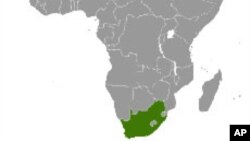A South African medical scholar has called for heavy government investment in medical research to improve the country’s healthcare delivery to all citizens.
Bongani Mayosi, professor of medicine at the University of Cape Town and the chief physician at the Groote Schuur Hospital, said the administration also needs to improve infrastructure in the public and private health systems.
Mayosi’s comments came at the end of the recent Council on Health Research and Development Group (COHRED) 2012 forum in Cape Town. The forum focused on low income and middle income countries that are increasingly using research and innovation to develop and implement ways of achieving greater health, equity and development as a result.
Mayosi said the conference provided a platform for health researchers to share ideas about improving quality healthcare delivery around the world.
“We are delighted that this meeting was held in Cape Town [that] looked at ways of how we can improve the health conditions of South Africans through health research.”
A 2009 Lancet medical report outlined a decline of the health conditions of South Africans, since the end of white minority rule in 1994.
“There are four main diseases that affect South Africans: infectious diseases such as HIV and AIDS, chronic diseases such as heart attacks and strokes, the third problem [is] diseases that affect mothers and babies around the time of child birth and finally, injury and violence,” said Mayosi.
“This quadruple burden of disease has resulted in a situation in which the life span of a South African at birth came down from nearly 70 in 1990 to about 50 in the year 2000. That’s almost a 20 year fall off in the life span of South Africans due to this massive burden of disease.”
Professor Bongani called on the government to implement a 2001 health research policy which he said could help boost efforts to resolve the country’s health decline.
“It calls for a number of interventions that must occur. The first one is appropriate investment in health research. The government must spend enough on research and in that document a figure of about 2 percent of the health budget was mentioned,” said Mayosi.
‘We must train adequate number of health researchers. We need infrastructure in the public health system [and] in the private health system that allows health research to occur…we must make sure that there is adequate funding internally for South Africans to do research on the most important problems.”
Mayosi said there should also be appropriate registration of new medicine and new devices, and the results of the health research should be made part of the country’s health policies.
“We need to make sure that the research that is being produced is being translated to policy, to practice, to patterns, to processes, and to products. So that society actually benefits from health research,” said Mayosi.
“We need to make sure that we are monitoring the impact of the investment we are making in health research.”
Bongani Mayosi, professor of medicine at the University of Cape Town and the chief physician at the Groote Schuur Hospital, said the administration also needs to improve infrastructure in the public and private health systems.
Mayosi’s comments came at the end of the recent Council on Health Research and Development Group (COHRED) 2012 forum in Cape Town. The forum focused on low income and middle income countries that are increasingly using research and innovation to develop and implement ways of achieving greater health, equity and development as a result.
Mayosi said the conference provided a platform for health researchers to share ideas about improving quality healthcare delivery around the world.
“We are delighted that this meeting was held in Cape Town [that] looked at ways of how we can improve the health conditions of South Africans through health research.”
A 2009 Lancet medical report outlined a decline of the health conditions of South Africans, since the end of white minority rule in 1994.
“There are four main diseases that affect South Africans: infectious diseases such as HIV and AIDS, chronic diseases such as heart attacks and strokes, the third problem [is] diseases that affect mothers and babies around the time of child birth and finally, injury and violence,” said Mayosi.
“This quadruple burden of disease has resulted in a situation in which the life span of a South African at birth came down from nearly 70 in 1990 to about 50 in the year 2000. That’s almost a 20 year fall off in the life span of South Africans due to this massive burden of disease.”
Professor Bongani called on the government to implement a 2001 health research policy which he said could help boost efforts to resolve the country’s health decline.
“It calls for a number of interventions that must occur. The first one is appropriate investment in health research. The government must spend enough on research and in that document a figure of about 2 percent of the health budget was mentioned,” said Mayosi.
‘We must train adequate number of health researchers. We need infrastructure in the public health system [and] in the private health system that allows health research to occur…we must make sure that there is adequate funding internally for South Africans to do research on the most important problems.”
Mayosi said there should also be appropriate registration of new medicine and new devices, and the results of the health research should be made part of the country’s health policies.
“We need to make sure that the research that is being produced is being translated to policy, to practice, to patterns, to processes, and to products. So that society actually benefits from health research,” said Mayosi.
“We need to make sure that we are monitoring the impact of the investment we are making in health research.”





